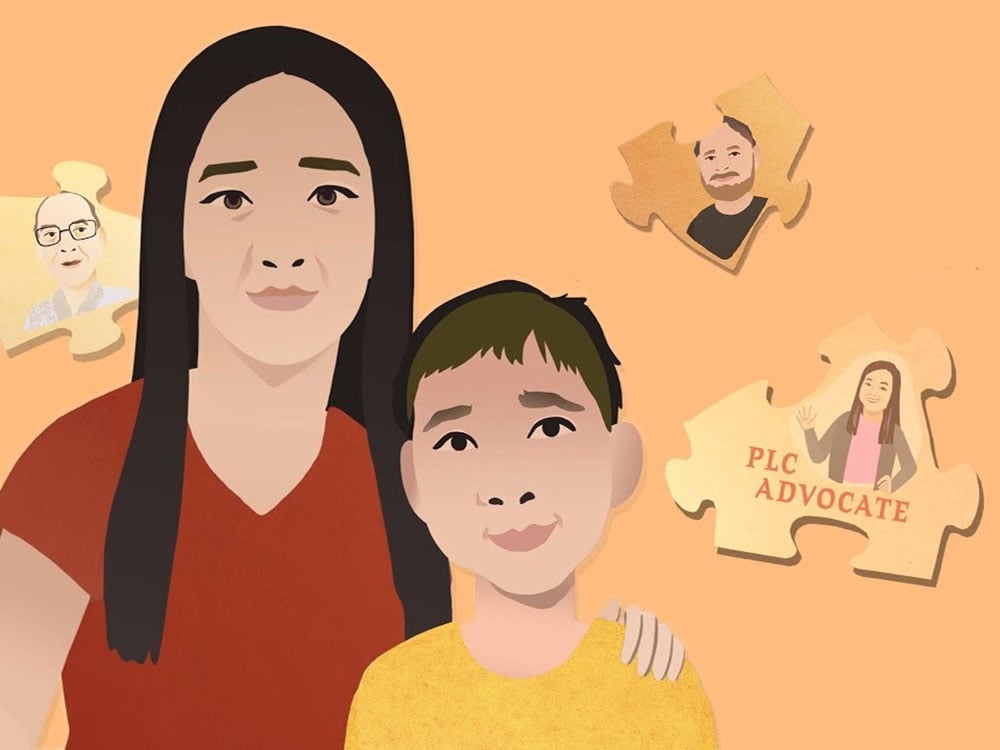Lawyers representing some of B.C.’s most vulnerable people say they’re chronically underpaid, leading to high turnover and positions they struggle to fill.
Legal Aid BC and a union representing 28 of its full-time staff wrote to the Ministry of Justice in January asking government to increase pay for those lawyers, who mostly represent Indigenous parents whose children have been apprehended by government.
Jeremy Orrego, a Legal Aid BC lawyer, and Scott McCannell, the president of the Professional Employees' Association, say the group is paid roughly 30 per cent less than other government lawyers working in comparable jobs, a gap that has pushed some to quit in favour of private practice.
“We’re bleeding hearts for our clients. None of us are in it for the money. But when the positions become available, we’re not having applications,” Orrego said.
Most lawyers for Legal Aid, which represents B.C. residents who can’t afford their own representation, are lawyers in private practice who are contracted to represent clients.
But that proved a difficult model for parents in complicated family court cases because of limits on how long those lawyers could be committed to a case.
In 2017, Legal Aid opened 10 Parent Legal Centres with full-time staff, including Orrego, to assist families with complicated cases involving children in government care. More than 67 per cent of children in care were Indigenous in the 2020-21 fiscal year, meaning Orrego mostly represents Indigenous women hoping to reunite their families.
Over his nearly four years in the job in Campbell River, Orrego said he has seen real benefits for families who otherwise wouldn’t have a good option.
“I’ve seen our relationship with the social workers lead to children being returned home quicker than when I started. It leads to children not being removed because they trust the parents who are working with us will do what they need to. Really, it’s resulted in families being kept together or reunited quicker,” Orrego said.
But those centres, Orrego said, have struggled to fill openings. He says in one case, Legal Aid couldn’t fill a parental leave opening until that person returned to work. In another, an opening received zero applications.
A 2018 review done by Legal Aid BC found its lawyers were making 13 per cent to 42 per cent less than comparators in the non-profit and public sector, depending on the nature of their role.
Crown prosecutors are paid from $175,000 to $201,000, while the staff legal aid lawyers are paid from $48,000 to $132,000. The lowest step for legal aid lawyers (post articling) is $48,000, and it caps out at $132,000, according to the Professional Employees Association.
In a letter to the attorney general’s ministry, both legal aid and the Professional Employees Association, the union that represents most government lawyers, warned the pay disparity was “not sustainable.”
“LABC finds it increasingly difficult to attract candidates for term and full-time positions as salaries lag far behind comparators in the justice sector. We are seeking to raise the basement, not the ceiling,” the statement said.
Legal Aid’s latest service plan acknowledges recruitment and retention of key staff is a risk for the organization. It wouldn’t comment on the issue, referring The Tyee to the attorney general’s ministry.
The ministry said Attorney General Niki Sharma was not available for an interview.
It provided an unattributed statement, which said employers across the country are struggling with recruiting and retaining staff. It said Legal Aid had begun a “comprehensive strategic planning process and is making internal structural changes” but did not elaborate on what that means.
Professional Employees’ Association president McCannell said the reason for the pay gap is the fixed system British Columbia uses to bargain with its public sector employees.
B.C.’s Public Sector Employers' Council Secretariat handles negotiations, and bargains with several unions at the same time on a main agreement for the group.
It bargains under a strict financial mandate set by government for all agreements. If one sector were to get a better deal, other unions would likely exercise “me too” clauses in their agreements to get the same increase.
But Legal Aid lawyers, McCannell said, have been underpaid for a long time.
In the late ’90s and early 2000s, Orrego said, Legal Aid transitioned to be mostly reliant on contracted lawyers. They’ve since received a pay bump in 2019 under then-attorney general David Eby.
But McCannell said the government contract mandates mean lawyers for Parent Legal Centres haven’t been able to achieve parity with other lawyers paid by government, including the ministry lawyers they often square off with in court.
“The PSEC mandates have tended to be one-size-fits-all,” McCannell said. “When we have these kinds of significant, systematic and persistent compensation challenges that are directly impacting clients… you need to think of ways to address compensation. It really is the primary driver behind these recruitment and retention challenges that are impacting clients.”
The proposal sent to the Ministry of Justice in January suggested three options, including indexing the pay for Legal Aid staff lawyers to the compensation received by Crown prosecutors, who are represented by a separate union.
Orrego said he left private practice to work for Legal Aid because he loves his clients. Many, he said, are some of the most marginalized people in the province and grapple with poverty, substance use and the consequences of systematic racism.
But he admits that if the pay doesn’t increase, he’s not sure he can justify continuing.
“I don’t know how much longer I can do this,” he said. “That’s a conversation I have with my wife.” ![]()
Read more: Rights + Justice, Labour + Industry
















Tyee Commenting Guidelines
Comments that violate guidelines risk being deleted, and violations may result in a temporary or permanent user ban. Maintain the spirit of good conversation to stay in the discussion.
*Please note The Tyee is not a forum for spreading misinformation about COVID-19, denying its existence or minimizing its risk to public health.
Do:
Do not: